Better public transport will drive growth, says CEO
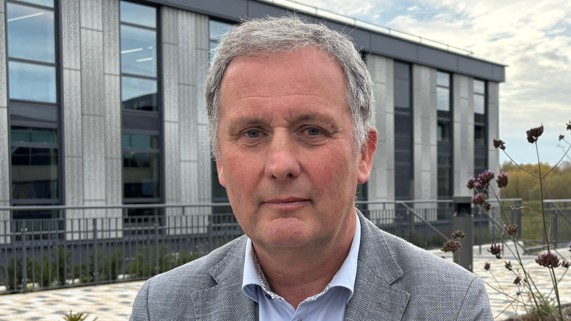
Robert Evans said better public transport services could help business grow in Cambridge
- Published
Better public transport services would help drive business growth in a city, a chief executive has said.
Robert Evans, the chief executive of the Wellcome Genome Campus, said transport links to the site in Hinxton, Cambridgeshire, could encourage more businesses and people to join the campus.
The site, which focuses on genomics, biodata, health data and data science, is about to start the first phase of a redevelopment project which could see it treble in size.
"A lot of [staff] drive and we want to change that and this project could go further and build quicker if we had public transport," Mr Evans said.
Under the plans the site will expand from 125 acres (50.5 hectares) to 440 acres (178 hectares) and be located on either side of the A1301.
Mr Evans said housing was "a real challenge" south of the city, which is why the company has planned for 1,500 new homes to be built, with 83 houses becoming available for rent as part of the project's first phase.
He said transport was one of the biggest issues for the area, adding that the "project could go further and build quicker" if public transport was improved.
"Our big hope is that we can work with the growth company, local civic leaders, local government, to bring public transport here," said Mr Evans.
"There is lots of discussion about long-term growth and we are part of a wider growth story."
Peter Freeman is chair of Cambridge Growth Company, which was set up to fulfil the government's vision for the Greater Cambridge area, external.
"We have to make Cambridge really easy to navigate and live in," he said.
He said it was too soon to be drawn on whether the transport solution might better bus and train services, or even light rail, but the organisation said it hoped to appoint a strategic transport adviser in the next few weeks.
"Then we'll start examining the viability and costing and deliverability on all the different modes," he said.
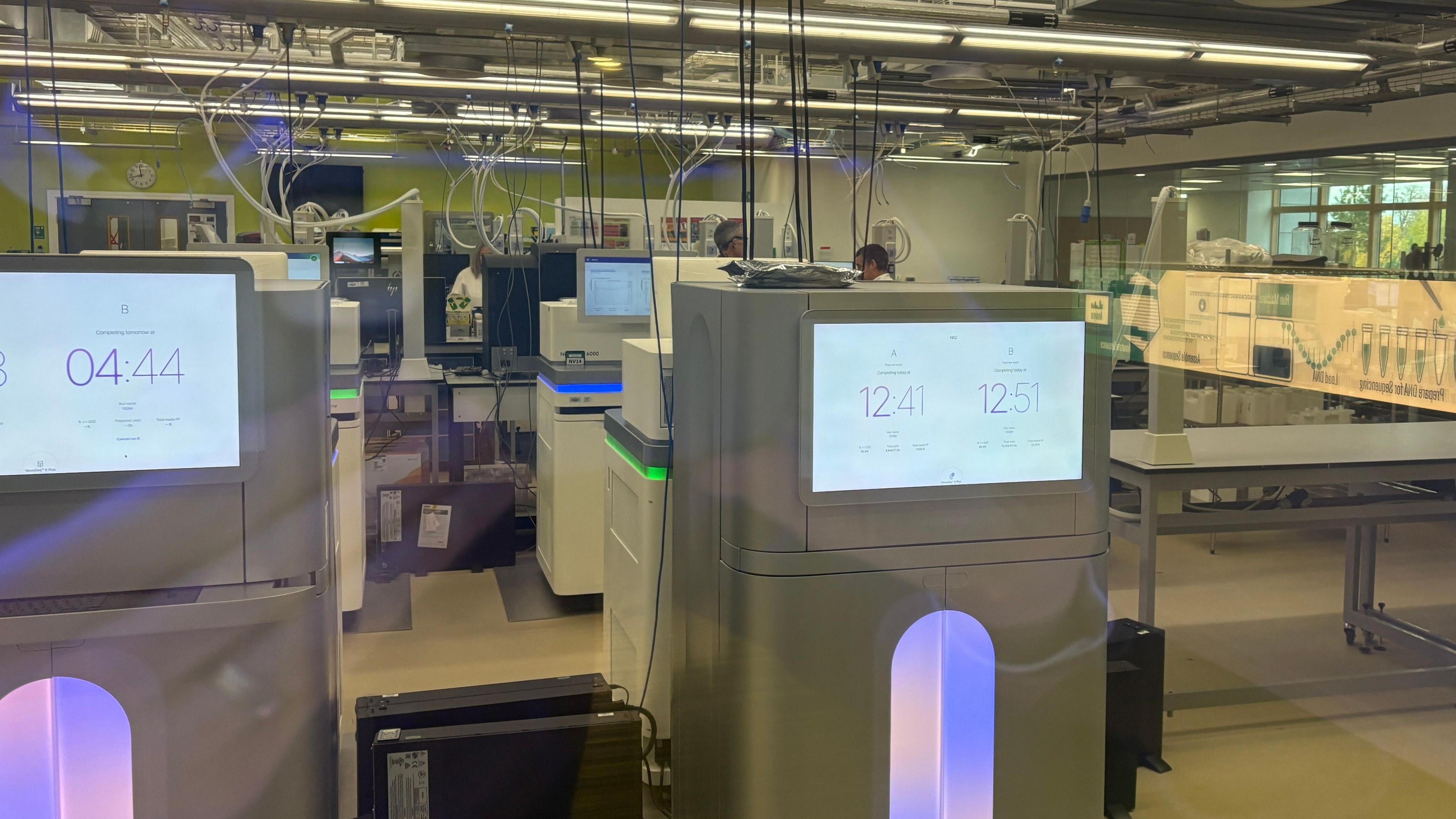
The Wellcome Genome Campus says it is a growing community of world leading institutes
The Wellcome Sanger Institute, which generates and analyses large-scale genomic data, is located on the campus.
Dr Julia Wilson, its director of strategy, partnerships and innovation, said: "I think there is huge potential for growth in life sciences in Cambridge."
Dr Wilson said about 1,500 people work at the institute, adding that they need to "locally house people and access schools and facilities".
The expansion would see new homes alongside a nursery, hotel and retail and leisure facilities.
"For us we need to be part of a thriving ecosystem and be able to attract and retain talent," she added.
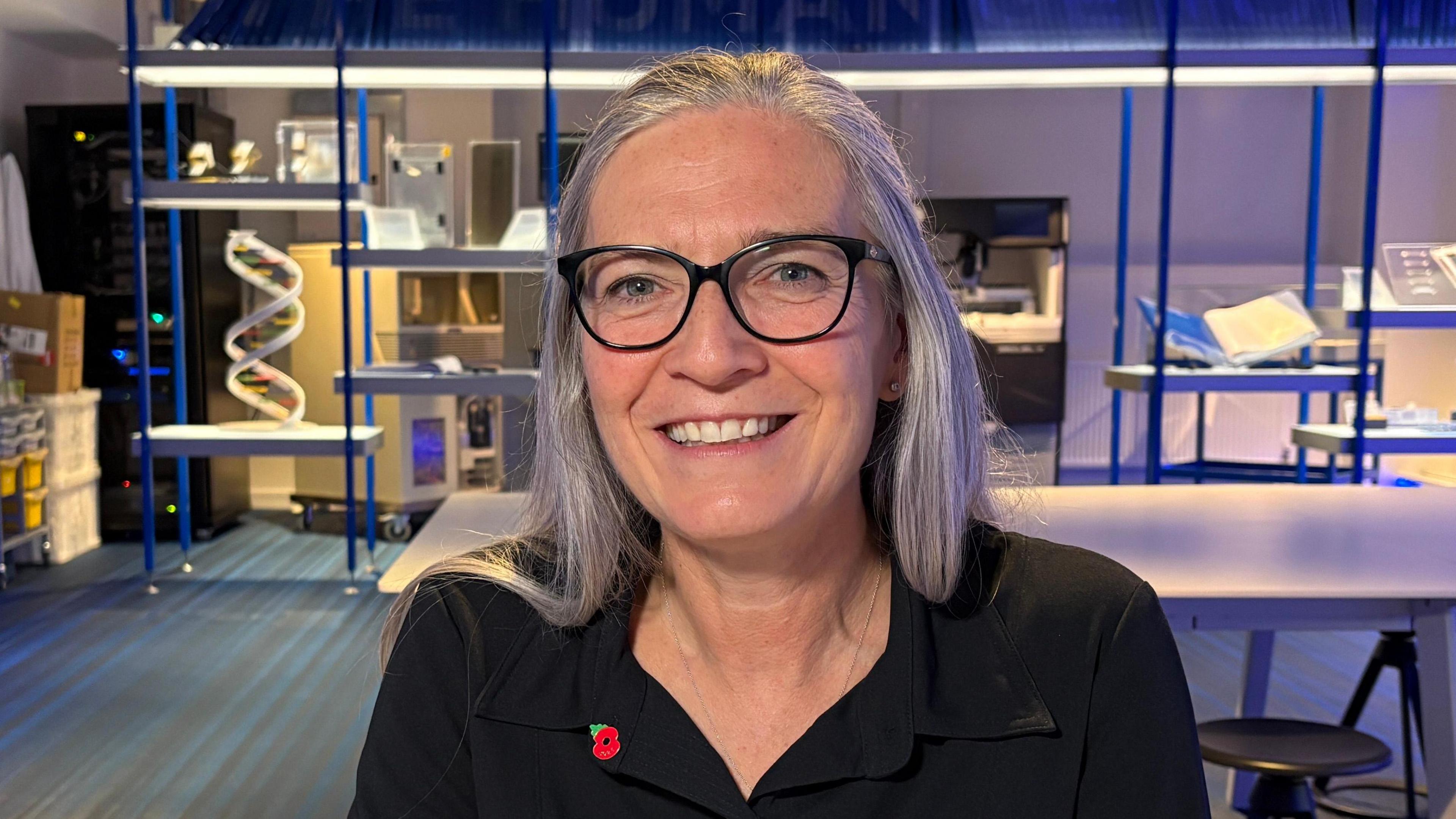
Dr Julia Wilson said there is "huge potential" for growth at the campus and the city
Recently a £400m investment in Cambridge was announced as part of a £500m package to "kickstart" the Oxford-Cambridge growth corridor, which aimed to support housing, infrastructure and business expansion.
The funding, which was announced by Chancellor Rachel Reeves, would see money go towards the development of affordable homes, alongside plans to launch a consultation on forming a new centrally led development corporation to support the growth of Cambridge.
Science minister Lord Patrick Vallance emphasised Cambridge's role in driving innovation and said the goal was to keep start-ups in the UK and create jobs that benefit everyone.
"We need to create the jobs of the future," he previously told the BBC, adding that doing so would help unlock more private investment.
Paul Bristow, the mayor of Cambridgeshire and Peterborough, said: "I'm in full agreement with Robert that better transport links to the Wellcome Genome Campus are needed to support growth and investment.
"The current Cambridge South East Transport (CSET) corridor plans do not go far enough to support the campus's growth plans and they need to be expanded.
"I want CSET to be part of light rail for Cambridge, properly joining up mainline stations, the city centre, and our business parks and campuses."
Get in touch
Do you have a story suggestion for Cambridgeshire?
Follow Cambridgeshire news on BBC Sounds, Facebook, external, Instagram, external and X, external.
Related topics
- Published24 October
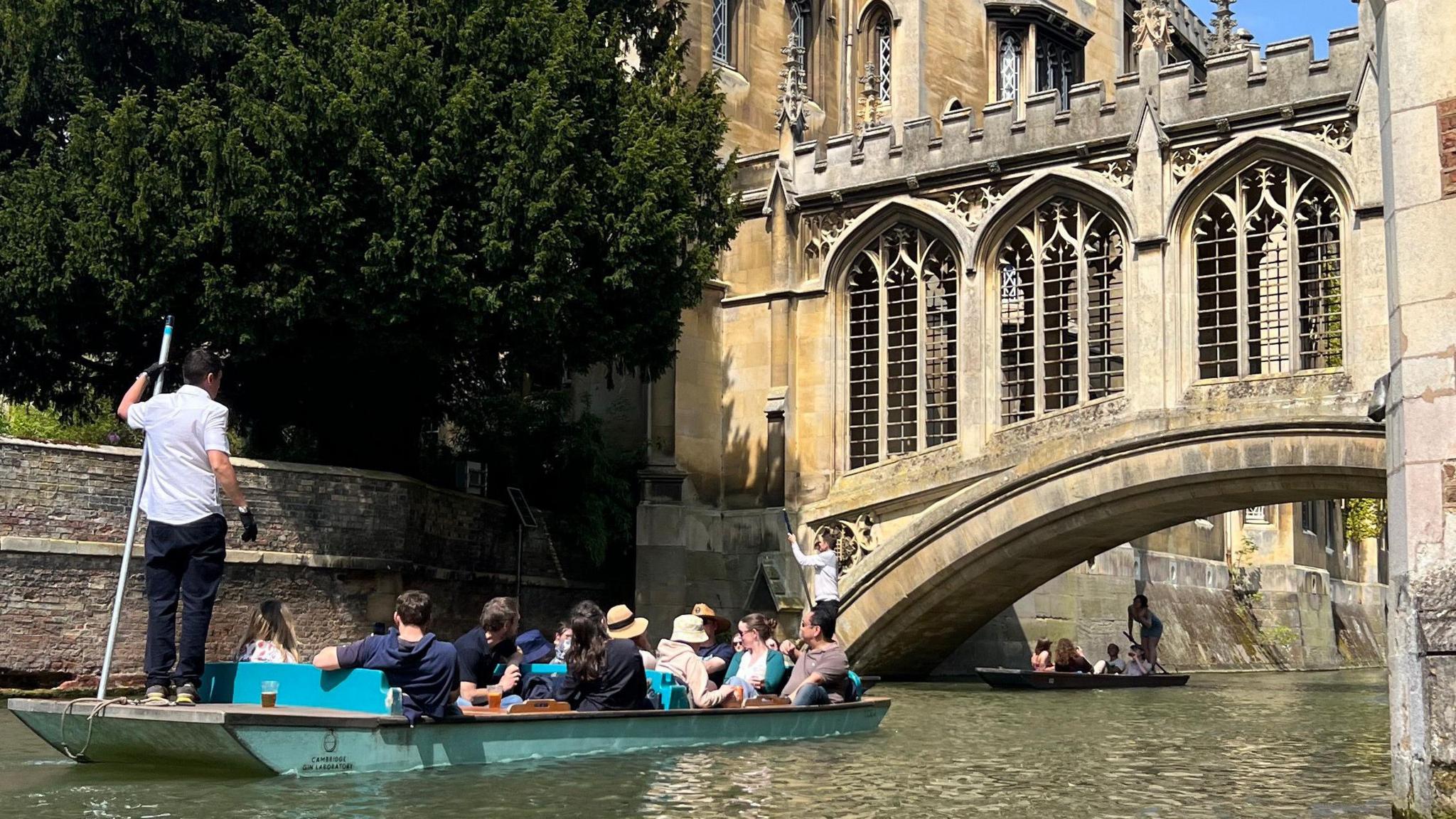
- Published23 October
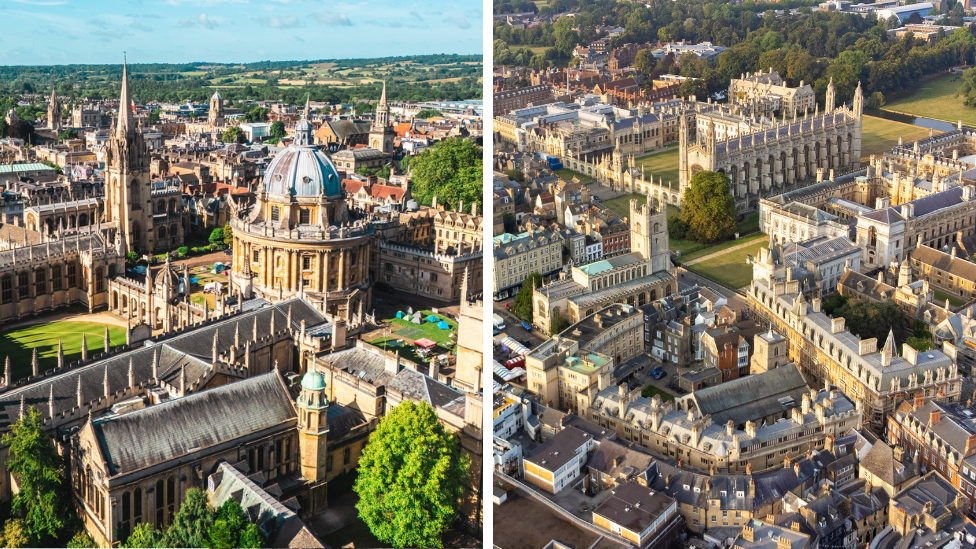
- Published14 July
